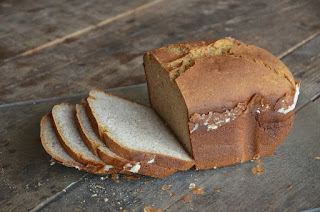Branched chain amino acids (BCAAs) are in some way the
creatine of the 21st century, what I mean by that is, that they have
become the “go to” supplement for every gym goer. Strength and endurance
enthusiasts alike are sold the idea that BCAAs are an essential component of
their nutrition regime because they supposedly induce an anabolic/avoid a
catabolic state in humans.
Whereas creatine now has decades of convincing research
behind it, can we really say the same about BCAAs?
This post will summarise the recent review by Robert Wolfe
in the Journal of the International Society of Sports Nutrition. I strongly
recommend that you read the full paper (link here) after you have read the main
points below.
First, a quick recap on amino acids. There are 20 amino
acids in total, 9 are essential and 11 are non-essential. The term “essential”
means that the body cannot synthesise these amino acids so we must obtain them
from food. Of the 9 essential amino acids (EEAs) 3 of these are called the
branched chain amino acids (BCAAs) these are, leucine, isoleucine and valine.
Muscle
protein is in a continued state of turnover, meaning proteins are constantly
being broken down and synthesised (built up). The term anabolic state refers to
when muscle protein synthesis (MPS) is greater than muscle protein breakdown
(MPB), in other words, our muscle tissue is being built up as opposed to being
broken down. When muscle protein breakdown is greater than synthesis this is
known as a catabolic state. The anabolic state can be achieved by either
increasing muscle protein synthesis or by reducing muscle protein breakdown. For
MPS to be greater than MPB all 20 amino acids must be present.
We are sold BCAAs under the premise that they stimulate
muscle protein synthesis and so we can avoid the dreaded catabolic state. But
what does the actual evidence say?
The Evidence
- The studies that show an increase
in MPS after ingestion BCAAs were conducted on rats. Muscle protein studies on
rats have little if any relevance to humans.
- These studies also administered
the BCAAs intravenously as opposed to orally
- Studies on humans, (who also administered
the BCAAs intravenously), actually showed a decrease in MPS
- The human studies also
demonstrated a decrease in muscle protein breakdown but overall net effect was
that the subjects remained in a catabolic state.
When all the evidence is considered, it appears that taking
BCAAs alone reduces protein turnover (synthesis and breakdown). The author
points out that this may have a negative effect on muscle strength due to a
reduction in new muscle fibre construction.
Current evidence suggests that BCAAs (in particular leucine)
increase the “signal” for MPS, however an increased signal will not lead to
increased MPS if the other EAAs are not available. Think of it as turning the
key in the ignition, without fuel the engine won’t start.
In order for MPS to occur all amino acids must be available.
After a meal containing sufficient protein, MPS is achievable because the EAAs
will be taken from the ingested food. However, in the post-absorptive state (in
between meals) the only source of EEAs is from the breakdown of muscle protein.
This is why muscle is in a constant state of turn over.
If we take a huge dose of BCAAs we reduce MPB, however, by
reducing MPB we reduce the amount of EEAs available for MPS so in turn, both
MPS and MPB are reduced.
The Good News (kind of)
With an increase in anabolic signalling through BCAAs, it
appears that it can increase the effect of a protein meal. One study
demonstrated that 5g of BCAAs added to 6.25g of whey protein had the same
effect on MPS as 25g of whey protein alone.
While this may seem interesting, when you weigh up the cost
of BCAAs against the cost of whey protein or (shock horror) real food, are they
really worth it? Remember the golden rule, more is not always better, so adding
even more BCAAs to your shake will not have a greater effect on MPS.
Another point to remember is, as we mentioned in our amino
acids and immune system post, the BCAAs
compete for the same site of absorption so when taken in a large dose the amino
acid in the greatest concentration (usually leucine) will be absorbed at the
expense of the others.
Conclusion
Not only is there a lack firm evidence to demonstrate an
anabolic effect of taking BCAAs alone, the author concludes that without a
supply of essential amino acids (either through food or muscle protein
breakdown) it is not possible for BCAAs alone to increase muscle protein synthesis.
Our advice as always is ensure you have a diet rich in high quality protein
before starting to consider supplements.
For more info please see www.gabinetederueda.es
 ¿Y
qué significa esto? Pues que ya no vamos a tener que ser
detectives🕵️♂️ cuando vayamos a comprar pan y que, por irónico que
parezca, cuando en la etiqueta ponga "pan integral", el pan ¡estará
hecho con harina integral 100%!
¿Y
qué significa esto? Pues que ya no vamos a tener que ser
detectives🕵️♂️ cuando vayamos a comprar pan y que, por irónico que
parezca, cuando en la etiqueta ponga "pan integral", el pan ¡estará
hecho con harina integral 100%! 






